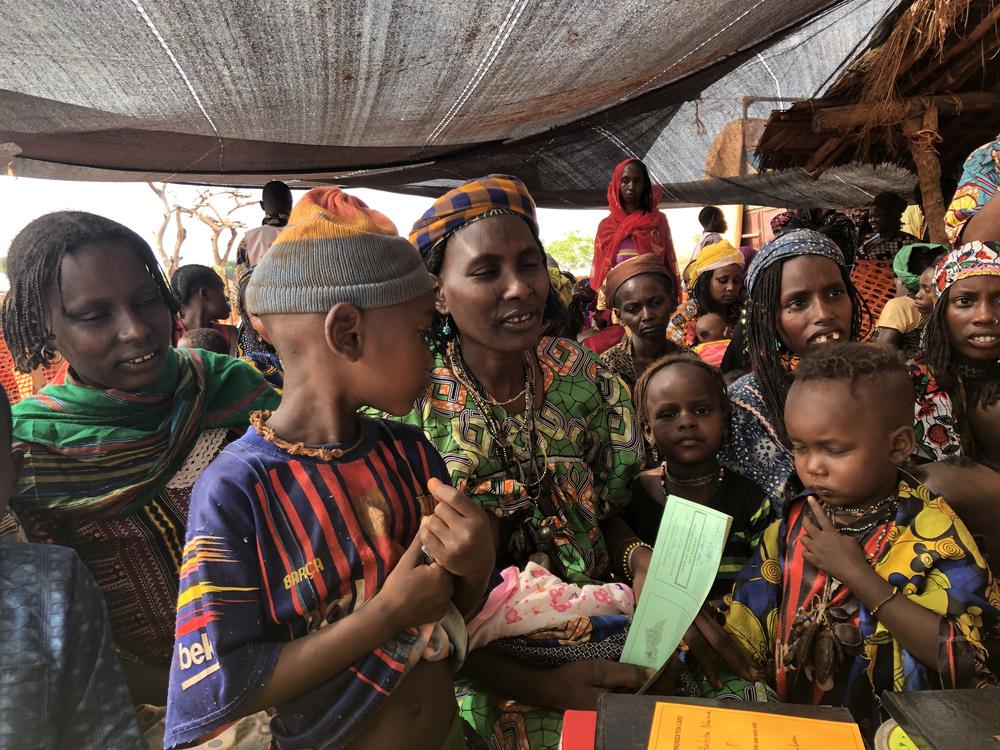Médecins Sans Frontières/Doctors Without Borders (MSF) today again urged Gavi, the Vaccine Alliance, to urgently prioritise reaching ‘zero-dose’* and under-immunised children up to age five, by removing barriers to broadening vaccine coverage for unprotected children, including by waiving co-financing requirements for countries and areas with fragile health systems, and those in humanitarian crisis. In many instances, children over the age of one who are eligible for vaccination but are un- or under-vaccinated do not receive their routine vaccinations due to a variety of reasons, with lack of Gavi support for vaccine doses for these older children being an important one. MSF’s call comes ahead of Gavi’s upcoming Global Vaccine Impact Conference, at which Gavi will share its Mid-Term Review to celebrate and reflect on its performance since the start of its 5th strategic period.
While the number of zero-dose children decreased globally between 2010 and 2019, disruptions to health systems during the COVID pandemic fuelled an historic global backslide in childhood immunisation. Between 2019 and 2021, 67 million children missed out on routine vaccination, of whom 48 million were zero-dose children who did not receive a single routine vaccine, including diphtheria-tetanus-pertussis (DTP). Even considering pre-pandemic progress, far too many children have missed out on routine vaccinations, especially those in fragile and conflict-affected settings: in 2018, some 40% of children living in these settings had not been vaccinated.
For over five decades, MSF has been vaccinating children either as part of routine vaccination, or in response to disease outbreaks in some of the world’s most challenging humanitarian contexts. In 2022, MSF vaccinated approximately 2.7 million children up to age five as part of routine vaccination in its various projects around the world.
Dr Sharmila Shetty, Vaccines Medical Advisor, MSF Access Campaign:
“If Gavi wants to truly fulfil its objective of ‘leaving no one behind with immunisation’, then Gavi should be doing much more to prioritise getting vaccines into the arms of ‘zero-dose’ and under-immunised children up to at least five years of age. The world is at a critical point: we are already seeing the reemergence of outbreaks of preventable and previously controlled diseases, making it all the more urgent for Gavi to remove any barriers within its remit that are blocking the broadening of vaccine coverage for unprotected children. “One of the barriers is, of course, cost, especially to reach the approximately 11 million under- and un-vaccinated children living in fragile or conflict-affected countries. With many countries in humanitarian crisis already cash-strapped and struggling to keep their health systems functional, we’re worried that paying for vaccines for children up to at least five who have missed some – or all – of their routine vaccinations may be an impossibility. To give children living in these countries the opportunity to catch up on their vaccines, we strongly urge Gavi to waive requirements to co-finance additional vaccines for countries and areas with fragile health systems or those in humanitarian crisis.
“We should not be letting any child suffer or lose their life simply because routine vaccines are not available to them, and, if Gavi were to waive co-financing requirements, that would be a major step towards ensuring equitable access to vaccines for all children everywhere.”
